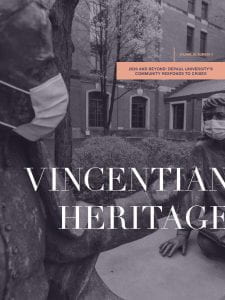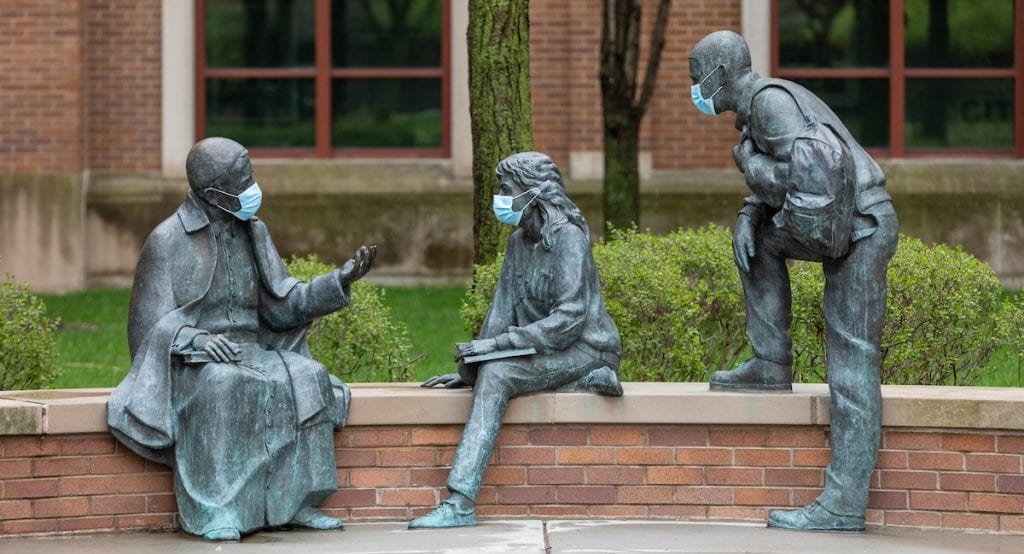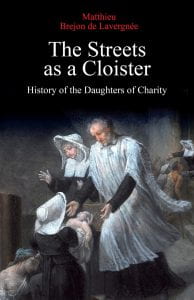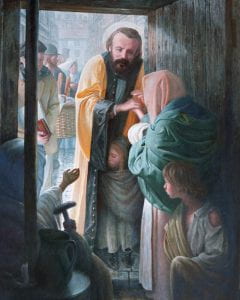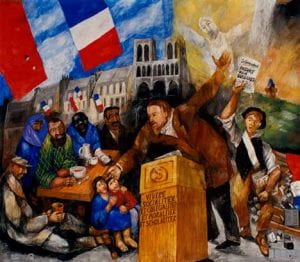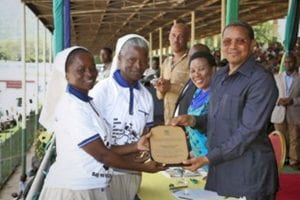“The cause of love is esteem for the good in the thing loved.”[1]
Do you ever wonder if you are a glass-half-full or glass-half-empty kind of person? Before you answer this question, pause for a moment and ask yourself how others might describe you these past two years as you have weathered the impact of the global pandemic and myriad other life stressors. What would they say? This may be a more revealing exercise than merely our own self-appraisal.
If you are anything like me, at times in these past couple of years, my ability to find hope in the world has certainly been tested. It’s hard to remain hopeful in tomorrow when yet another news report bellows that a new strain of the virus is traversing borders faster than a tweet can pop into your feed. Or when we learn that global warming’s intensity is surpassing rates never before imagined as our planet is ravaged by all kinds of atmospheric pollutants. Or when senseless violence continues to lay bare unjust and broken societal systems that we ourselves have created and continue to maintain. In the face of such alarming realities, our belief in the goodness of humanity and our capacity for hope can be severely diminished. At moments such as these, what enables you to stay in touch with the best in life and continue to trust that goodness will win out, despite the foreboding shadows? What gives you the hope and compassion to believe that “right relationship” can be restored and is eternally possible?
I believe that Louise de Marillac and Vincent de Paul must have struggled with similar questions. After all, they spent most of their lives enduring tumultuous wars and endless battles. They also witnessed dire poverty and harsh human suffering. What kept them hopeful and allowed them not to give up on humanity?
For Louise and Vincent, it was their enduring faith in a loving God that enabled them to never lose sight of the good. Undeniably, their belief in such goodness was made real through their interactions with the community around them and reinforced by the power of the ministry in which they engaged, primarily with those on the margins of society. Indeed, no matter if they were ministering to the haughtiest of aristocrats or the lowliest of paupers, Louise and Vincent chose to believe in the power of goodness to prevail and the potential of hearts to be moved. Their lived reality was thus a living testament to the capacity of the human person to choose to respond with love.
- As you contemplate how full or empty your glass is today, who or what has given you the ability to replenish your supplies when life gets hard, and the clouds seem particularly ominous?
- In our particular context at DePaul, what gives you the sustenance to keep believing in the best of the mission when decisions may seem out of step with your aspirations?
- Where do you find the ability to go on believing when the terrain gets tough and you lose sight of the way out of the woods?
- What enables you to choose to love and find hope in the good of our world today?
Reflection by: Siobhan O’Donoghue, Director of Faculty/Staff Engagement, Division of Mission and Ministry
[1] A.29, “(On Charity),” Spiritual Writings of Louise de Marillac, 710. Available at: https://via.library.depaul.edu/ldm/.

